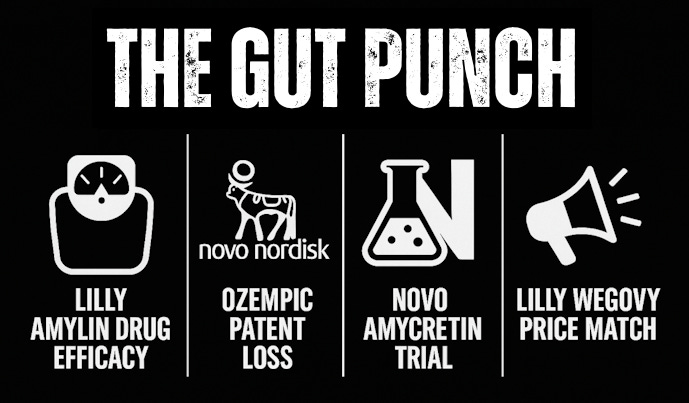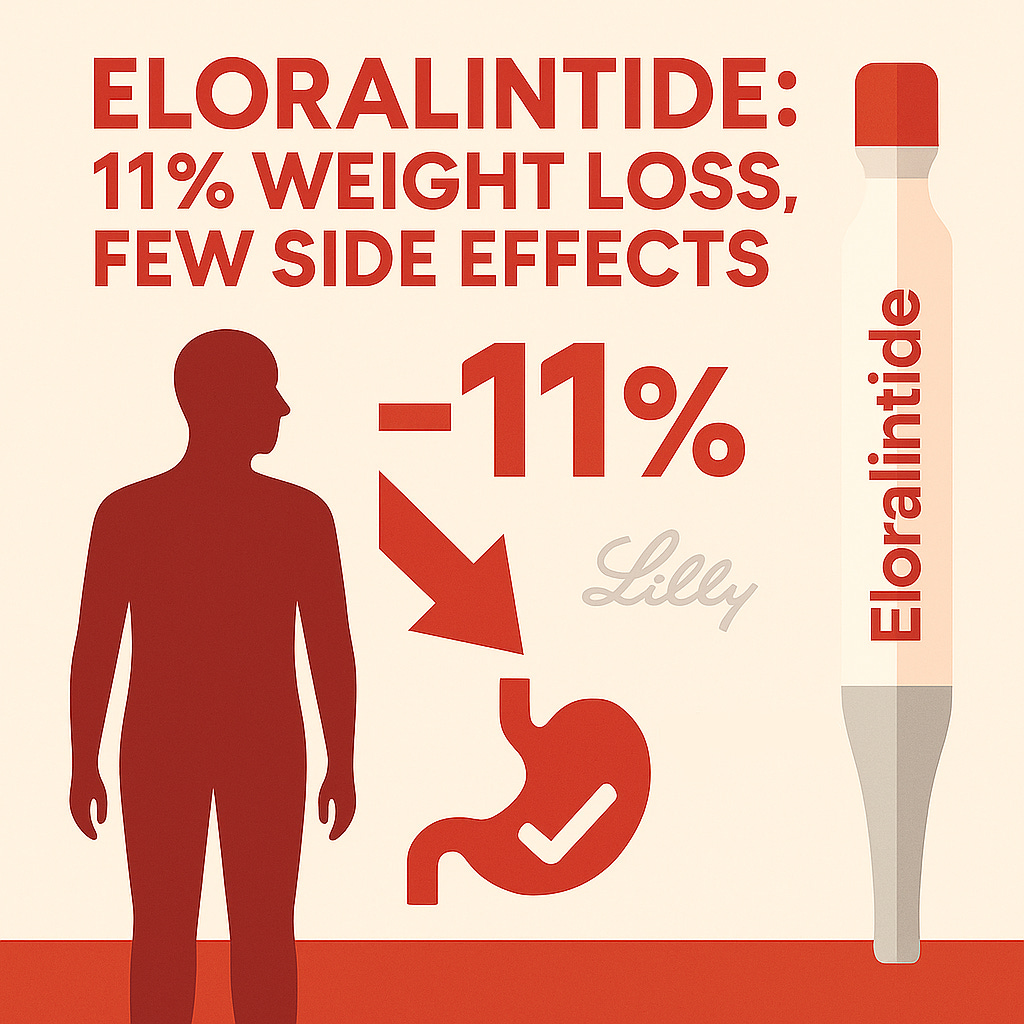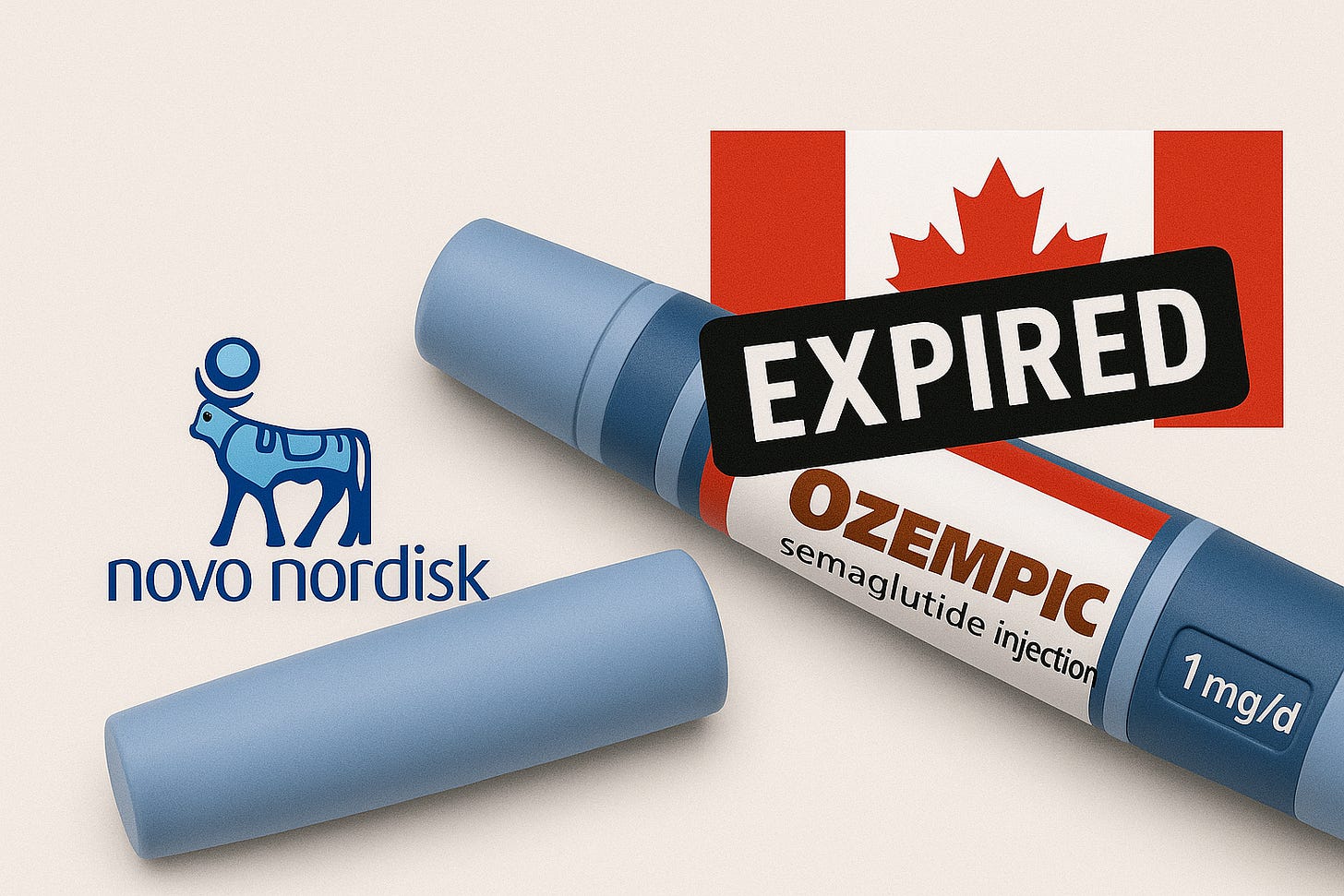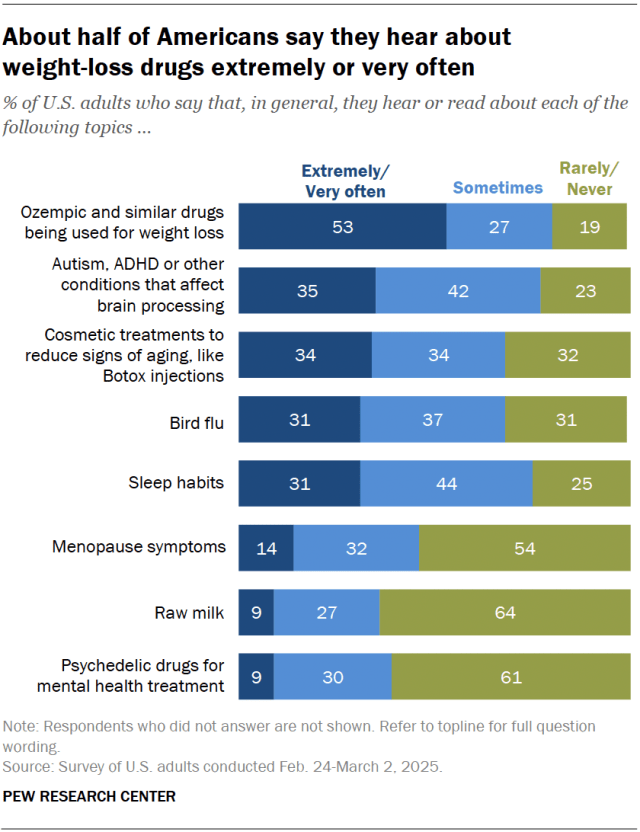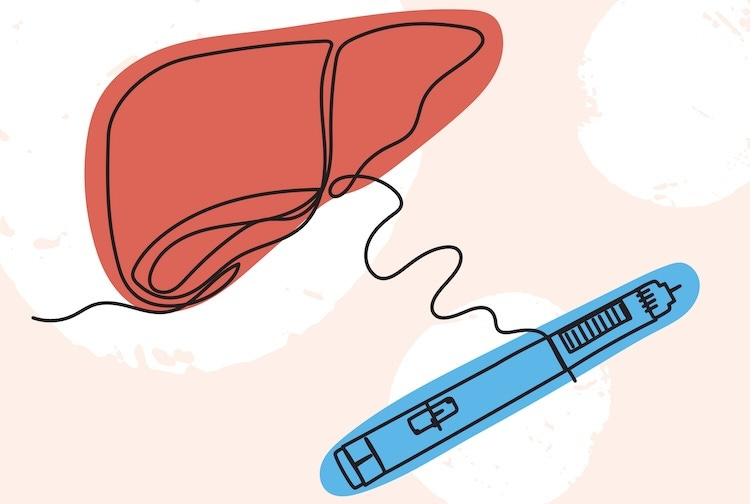The Gut Punch Weekly #25
Lilly's Amylin drug shows weight loss with fewer side effects, Novo Nordisk loses Canadian Ozempic patent over unpaid $250 fee, and more!
Top Stories
1) Lilly's Amylin Drug Shows 11% Weight Loss, Few Side Effects
Eli Lilly's phase 1 data for its amylin analog eloralintide showed up to 11% weight loss over 12 weeks, impressing analysts with both efficacy and a favorable side effect profile.
The drug was well tolerated, with relatively low rates of gastrointestinal side effects compared to GLP-1 agonists, showcasing its potential as an obesity treatment.
Analysts are particularly optimistic about combining eloralintide with Lilly's tirzepatide (Mounjaro/Zepbound) to create a market-leading obesity treatment.
However, Lilly faces competition from other pharmaceutical giants like AbbVie, Novo Nordisk, and Roche, who are also developing amylin-based therapies for obesity.
2) Novo Nordisk Loses Canadian Ozempic Patent Over Unpaid Fee
Novo Nordisk is losing Canadian patent protection for its blockbuster drug semaglutide (Ozempic, Wegovy) after failing to pay a modest annual maintenance fee years ago.
The early patent expiration in Canada, the second-largest semaglutide market globally, opens the door for generic competition from companies like Sandoz as soon as next year.
While Ozempic patents remain in force in the U.S., Europe, and Japan for several more years, the early Canadian loss could significantly impact Novo Nordisk's revenues.
Ozempic alone generated 2.5 billion Canadian dollars in pharmacy sales last year for Novo.
(Fortune)
GLP-1 Industry Intel
Novo Plans Late-Stage Trials for Amycretin Obesity Drug: Novo Nordisk's new obesity drug candidate amycretin, which achieved 22% weight loss in Phase 2 trials, will advance to Phase 3 testing in both injectable and oral forms by early 2026.
Lilly Matches Wegovy Price, Signals Bigger Market Moves: Eli Lilly matched the price of Novo Nordisk's Wegovy for high-dose Zepbound through its LillyDirect program, aiming to strengthen its position in the obesity drug market and appeal to uninsured or underinsured patients.
Policy Shifts Could Make GLP-1 Weight Loss Drugs Affordable: Policy reforms enabling compounding pharmacies and limiting patent extensions could make GLP-1 weight loss drugs far more affordable for American patients.
Food & Wellness Industry Intel
Body Scan Companies Target Obesity Drug Market: Body scan companies are marketing new portable devices to capitalize on rising demand from patients using popular obesity drugs like Wegovy and Zepbound.
GLP-1 Drugs Significantly Reduce UK Snack and Alcohol Spending: New data shows GLP-1 weight loss drugs are significantly impacting food purchasing habits, with UK households containing users spending 2.2% less on groceries and reducing consumption of snacks, alcohol, and takeaways.
Lark Health Launches AI Tool for GLP-1 Cost Management: Lark Health introduced LarkVantage, an AI-powered platform designed to streamline GLP-1 medication authorization processes and manage associated costs for healthcare payers.
Frontline Focus
Lawmakers Push to Stop Illicit GLP-1 Drug Sales: Bipartisan lawmakers are urging federal agencies to crack down on counterfeit GLP-1 weight loss drugs amid rising reports of illicit sales, adverse events, and supply chain infiltration.
Ozempic Users Report Family Members Also Getting Healthier: A surprising side effect of weight loss drugs like Ozempic is that family members of patients are also adopting healthier habits and losing weight without taking the medication.
Weight Loss Drugs Need 30-80% Price Cut: Two new University of Chicago studies found that while GLP-1 drugs offer impressive health benefits, their current prices significantly exceed cost-effectiveness thresholds and would require 30-80% price reductions to become economically viable.
Half of Americans Frequently Hear About Weight Loss Drugs: Pew Research findings show Americans' exposure to health topics varies significantly, with weight-loss drugs leading public attention at 53%, while other topics like menopause and raw milk receive considerably less attention.
GLP-1 Clinical Insights
Weight Loss Drugs May Help Reduce Substance Use: New research suggests GLP-1 receptor agonists may help reduce substance use disorders, according to a large VA study showing decreased risk of alcohol, cannabis, opioid, and stimulant use disorders.
Long-Term Safety Concerns Surround Weight Loss Drugs: While weight-loss drugs like Ozempic and Mounjaro show promising results for obesity treatment, recent reports highlight potential risks including contraceptive interference, kidney concerns, and vision problems.
Semaglutide Shows Promise for Treating Fatty Liver Disease: A clinical trial led by VCU researchers found that semaglutide shows promise in treating and reversing fatty liver disease.
Diabetes Drugs Like Ozempic May Protect Against Dementia: Scientists are discovering that GLP-1 agonist drugs like Ozempic might help combat dementia and neurodegenerative diseases by improving insulin signaling and reducing inflammation in the brain.
Patients Regain Two-Thirds of Weight Post-GLP-1 Treatment: Clinical data indicates that stopping GLP-1 medications results in substantial weight rebound, suggesting obesity requires ongoing treatment and comprehensive lifestyle changes for sustainable results.
Bariatric Surgery Superior to GLP-1s in Weight Loss Study: A large study found bariatric surgery leads to about five times greater weight loss over three years than GLP-1 receptor agonist medications like semaglutide or tirzepatide.
The Bleeding Edge
Korean GLP-1 Drug Reduces Liver Fat, Aids Weight Loss: D&D Pharmatech's once-weekly GLP-1 drug DD01 showed promising results in MASH patients, with 75.8% achieving significant liver fat reduction and 42.4% experiencing notable weight loss after 12 weeks.
Experimental Pill Burns Fat Without Suppressing Appetite: The experimental pill SANA promotes significant fat loss by activating thermogenesis without suppressing appetite, offering a promising new approach to obesity treatment distinct from current appetite-reducing drugs.
Scientists Map Brain Circuits Controlling Hunger and Fullness: Researchers identified two distinct neural pathways - one that drives hunger and another that signals fullness, showing how energy states rapidly rewire these circuits throughout the day.
Hippocampus Neurons Encode Meal Memory, Affect Eating Behavior: Scientists discovered that ventral hippocampus neurons projecting to the lateral hypothalamic area and enriched in serotonin 2a receptors are crucial for encoding meal-related memories and regulating feeding intervals.
Key Brain Neurons May Eliminate Ozempic Side Effects: Swedish researchers have identified specific brain neurons (Adcyap1+) that could lead to weight-loss with fewer side effects.
AI-Designed Peptides Match Wegovy's Performance in Lab Tests: ImmunoPrecise Antibodies announced that its AI-designed GLP-1 receptor agonist peptides matched or exceeded semaglutide's performance in laboratory tests.


